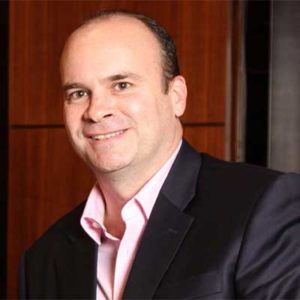We’re discussing the term “anti-aging” and whether a movement towards banishing the term is something the spa and wellness industry should be talking about and keeping an eye on.
Read about why were discussing this in the article Trend watch: is it time to stop using the term “anti-aging”?
And now, three esteemed spa & wellness experts Julia Sutton, Andrew Gibson, and Trent Munday offer their thoughts on the subject.
 Julia Sutton, COO, exhale
Julia Sutton, COO, exhale
I do think the term anti-aging has a negative connotation to it. What is wrong with aging? Most cultures really embrace and respect aging. I think a better approach than pushing back against aging is being proactive with one’s approach to living life, continuing to innovate yourself and explore and seek out experiences. It seems that when one opens themselves up for change their body thrives from it and remains supple. The minute you start getting into a routine, your body stops “reacting” and seems to slow down . It feels most comfortable to stay with the norm, but ultimately our body thrives when we step out of that comfort zone.
One example in my own life, I recently joined a really stimulating book club and, while it might sound cliché, it forces me to read books that I normally would never consider. Needless to say I am learning a ton and my mind is more stimulated than ever. It appears that is where wellness is headed. In spa and wellness, we can approach this idea of innovation by offering people the opportunities to continue to get involved in experiences. This might come in the form of a workout program, a skin care program, or a healthy mind program.
 Andrew Gibson, VP Well Being Luxury Brands, AccorHotels
Andrew Gibson, VP Well Being Luxury Brands, AccorHotels
I don’t think “anti-aging” is the best terminology we can be using and I think there is better terminology out there. A better perspective is ‘healthy aging’ because that is really what we’re trying to do. You can’t actually stop the aging process, at least not yet. They may be getting closer to doing it, but not yet, so you’re looking at ‘healthy aging.’
That being said, there is a public awareness about what anti-aging means, and from that perspective, it works. Anti-aging is a universally accepted term. If you mention the term anti-aging to people, irrespective of their age, most people would be able to give you an answer as to what that is. So, I’m not wholeheartedly in for trying to outlaw the term. I do, however, think that there could be better terminology and even better definitions of the existing terminology.
As it is there is often a disconnect between what companies promise and what is being delivered, which is not meeting the expectation of the guest.
So, if a change is to be made, whatever terminology that winds up being used is going to need specific defining. And that is a process. There has to be a consensus between several different bodies, and then there is a massive process of educating and communicating that to people.
 Trent Munday, Vice President, Steiner Spa Consulting
Trent Munday, Vice President, Steiner Spa Consulting
I attended the Global Wellness Summit where the term “anti-aging” was mentioned more than once in sessions focused on skincare & beauty, and nobody batted an eyelid. So, I don’t think that I would be able to say that I’m seeing a shift towards gentler language.
And I am wary of such movements. As an industry, we’re still trying to work out if we are spa or wellness, as I recently discussed in an article titled Is Wellness Killing the Spa Industry? If we as an industry are not able to understand and differentiate between these two words/ideas/concepts, what possible hope can our consumers have to do so? And if we can’t even get that sorted, I’m not sure we’re ready for the subtle difference between anti-aging vs ‘graceful ageing’ or whatever other terms are being suggested as more appropriate.
We’ll see where this goes. I’m a big believer in letting the market decide. And also a believer in what we call it being way less important than what benefit it delivers.
Related:
Trend watch: is it time to stop using the term “anti-aging”?
Spa Executive magazine is published by Book4Time, the world’s most innovative spa, salon, wellness, and activity management software. Learn more at Book4Time.com



